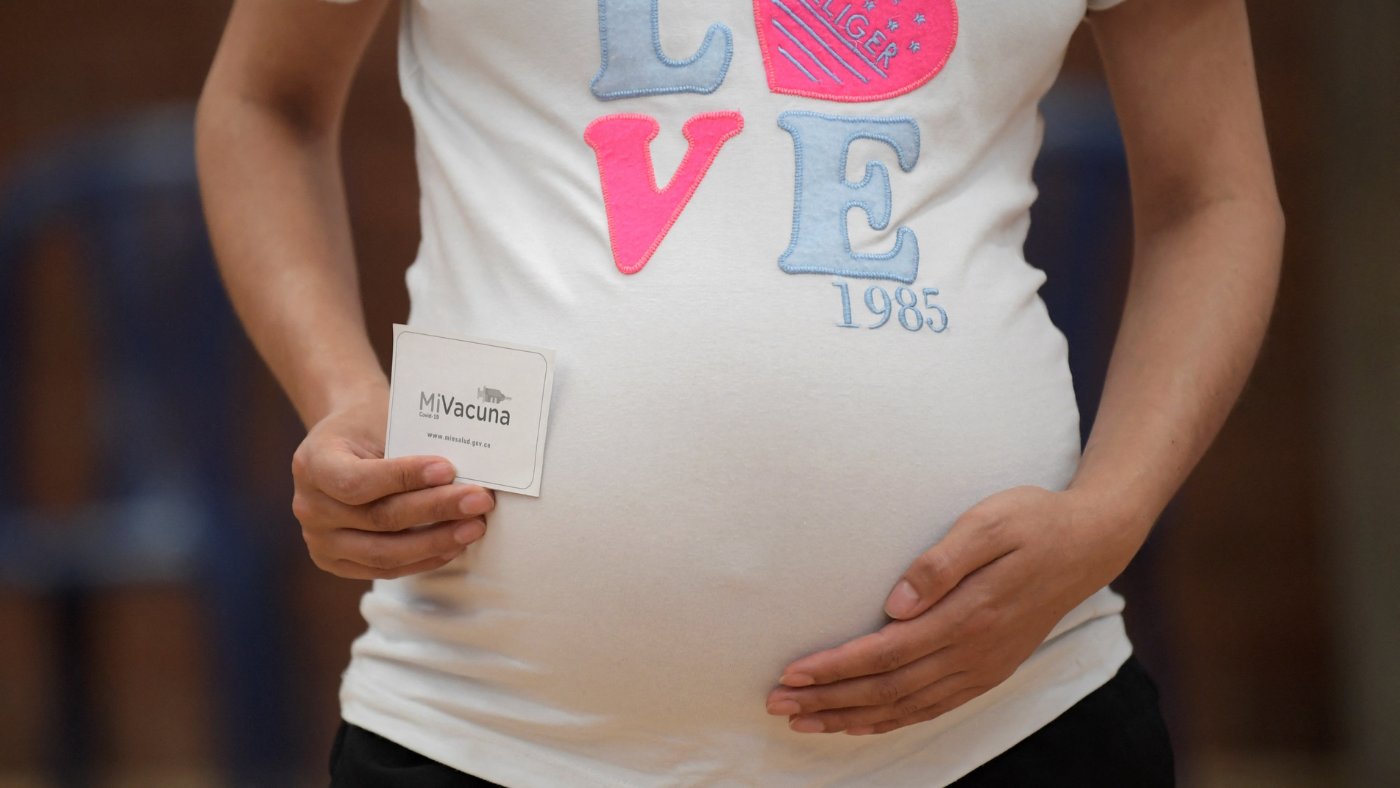Are pregnant women ‘more at risk’ of severe Delta variant symptoms?
Healthcare professionals stress importance of antenatal vaccination

A free daily email with the biggest news stories of the day – and the best features from TheWeek.com
You are now subscribed
Your newsletter sign-up was successful
All but 2% of pregnant women admitted to hospitals in the UK with coronavirus have not been vaccinated, new research has found.
The UK Obstetric Surveillance System (OSS) data has led to calls from medical professionals urging expectant mothers to get vaccinated. Of the 171 women who were treated for Covid-19 in UK hospitals during the past three months, only three had received a vaccine dose – and none were fully vaccinated.
England’s chief midwifery officer, Professor Jacqueline Dunkley-Bent, says the data’s findings come as “another stark reminder that the Covid-19 jab can keep you, your baby and your loved ones safe and out of hospital”, The Guardian reports.
The Week
Escape your echo chamber. Get the facts behind the news, plus analysis from multiple perspectives.

Sign up for The Week's Free Newsletters
From our morning news briefing to a weekly Good News Newsletter, get the best of The Week delivered directly to your inbox.
From our morning news briefing to a weekly Good News Newsletter, get the best of The Week delivered directly to your inbox.
Antenatal advice
Since 1 March 2020, 3,371 pregnant women have been admitted to hospital with symptoms of Covid-19. In the period that the Delta variant has been dominant – 16 May to 11 July 2021 – 45% of those women experienced moderate to severe levels of infection, compared to the 24% reported in the first wave.
Speaking to Today on BBC Radio 4, the lead researcher Professor Marian Knight said that while pregnant women were “naturally hesitant” about getting the vaccine when it was first offered, they can now “be reassured” by a wealth of “real world evidence”. On 16 April, the Joint Committee on Vaccination and Immunisation recommended all pregnant women, regardless of risk group, get vaccinated.
In the UK, more than 51,000 pregnant women have received at least one dose of a Covid-19 vaccine, according to Public Health England. Of those, 40% have received their second dose.
A free daily email with the biggest news stories of the day – and the best features from TheWeek.com
Vaccines minister Nadhim Zahawi also urged pregnant women to get vaccinated. “While uncommon, severe illness from Covid-19 is more likely in later pregnancy and infection increases the risk of a premature birth,” he said.
More dangerous?
The OSS data compared the Alpha dominant period – from 1 December 2020 to 15 May 2021 – and the Delta dominant period. The findings revealed that the risk of pregnant women contracting pneumonia was 27.5% during the Alpha period, compared to 36.8% in the Delta. A third of women admitted to hospital during the Delta period also required respiratory support.
In Brazil, where the share of cases attributed to the Delta variant has increased rapidly in July, the Covid-19 death toll is second highest in absolute terms, according to analysis by the Financial Times. “In every 100 pregnant women diagnosed with Covid, 12 die,” said Dr Lilian Cristina Moreira. The population’s fatality rate is 2.8% by comparison, the healthcare professional noted.
Experts are pointing to a “strained healthcare system, inadequate and unequal provision of services and lack of experience in treating such patients” as compounding the risk for pregnant women, the paper continues.
Vaccinations for pregnant women had been restricted since May, following the death of an expectant mother who had received the AstraZeneca vaccine, but Brazil’s health minister announced the lifting of those restrictions earlier this month.
One expectant mother in the UK, who recently contracted Covid-19, told the i that she was “nervous of doing anything that might affect this pregnancy”, despite noting that midwives had warned that the virus increased the rise of blood clots and premature birth. Today’s news is likely to reassure those still wary of vaccination.
Julia O'Driscoll is the engagement editor. She covers UK and world news, as well as writing lifestyle and travel features. She regularly appears on “The Week Unwrapped” podcast, and hosted The Week's short-form documentary podcast, “The Overview”. Julia was previously the content and social media editor at sustainability consultancy Eco-Age, where she interviewed prominent voices in sustainable fashion and climate movements. She has a master's in liberal arts from Bristol University, and spent a year studying at Charles University in Prague.